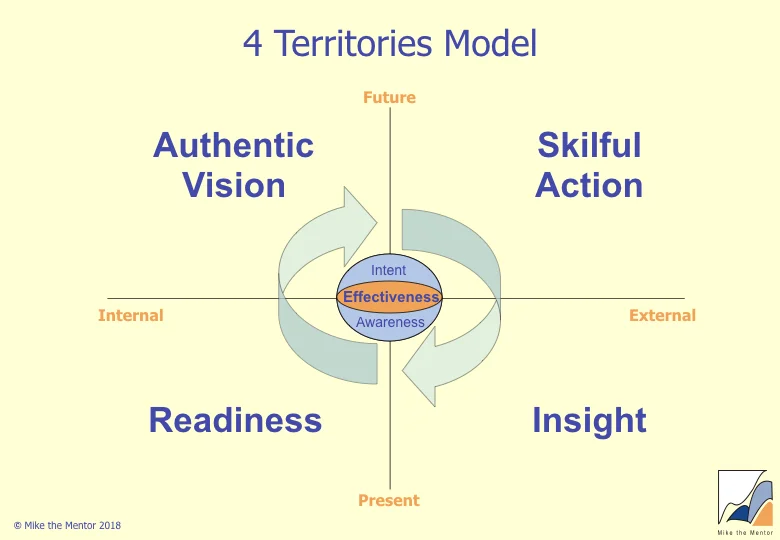Coaching Supervision
/I have been a supervisor since 2004, working with executive coaches, coaches in training, and forensic scientists. I am accredited as a Master Coaching Supervisor by the Association for Professional Executive Coaching and Supervision (APECS). I was trained by the Bath Consultancy Group and have a Certificate in Coaching Supervision.
I help coaches (and other professionals including mentors, consultants, advisors and trainers) ensure the quality of their work, maintain their resilience, and develop professionally. I work with individual coaches, groups and with organisations offering supervision to their own coaches.
My approach to supervision is informed by my training in Psychosynthesis, the 7-Eyed Model, the Three Worlds 4 Territories model, and by ideas around presence, values clarification, and stages of leadership development.
My supervision supports coaches in being the best coaches they can be. It focuses on:
ensuring that they are developing effective working relationships with their coachees
facilitating their personal and professional development
developing their coaching competencies
ensuring that the their work and approach is aligned with the needs of the coachee and of the client organisation
helping them make the personal shifts that will enable them to help their coachees make the shifts they need to make.
Benefits
The benefits of Coaching Supervision include:
developing new choices when "stuck" in your work
exploring ethical dilemmas in a safe and confidential environment
balancing your responsibilities both to the organization and to your individual clients
learning new skills and approaches
acquiring new models and frameworks to guide your coaching
understanding the culture or ecology of organisations in which you operate
knowing how to work effectively within an organisational setting
controlling the flow of information, particularly 'double bind' information
seeing the coaching within the context of the wider organisational needs
developing your coaching presence by increasing your Self awareness and your ability to use your perceiving, thinking, feeling, intuiting, and wisdom in service of your clients and the systems they operate in.
The frequency of the supervision sessions depends on the volume of coaching work being undertaken, the experience of the coach, and the nature of their work environment. (The CIPD recommends that coaches should receive supervision at least once every 2 months or one hour for every 35 hours of coaching.)
Supervision of Supervisors
As well as supervising coaches, I also supervise other coaching supervisors. This has many similarities to coaching supervision but tends to be more adult, more in depth and more generative, and the supervisory relationship to be more collegial and collaborative. The client system being supervised is also more, complex, as shown by comparing the two diagrams.
When supervising coaching supervisors I am helping them develop the psychological spaciousness to be able to be aware of the whole supervisory system and loosen their identification with any one part of it. This includes getting a clearer sense of their Self as the orchestrating centre of their awareness (and then perhaps noticing that there is no Self anyway).
We use in-depth reflection and reflexive thinking, examine multiple perspectives, uncover mutual blindspots, improve professionalism, develop supervisor identity, and explore ethical dilemmas.
What My Supervisees Say About Working With Me
I have found Mike's supervision to be a critical part of my success as a Coach. His focus is often on drawing out my own answers and wisdom to issues and quandaries, ensuring I feel empowered as an expert in my own work. He adeptly encourages inquiry and reflection to help me improve my work, and his past experience as a psychotherapist is very useful when exploring the deeper unconscious dynamics that might be at play between a coach and client. Mike is always positive and encouraging, highlighting my skills, strengths and abilities helping me feel confident and supported. I would highly recommend Mike to coaches and other professionals seeking supervision.
Thea Platt - Coaching With Thea: Coach, Psychotherapist, Consultant - Devon
I began my Supervision with Mike Munro Turner in early 2020. From the outset, I have greatly benefited from the sense of space that he creates for my way of ‘reflecting in the moment’. Although all our sessions have been at a distance, I have the impression that we have built a genuine relationship despite never having met in person.
I am a Coach with over 20 years experience. The added value that I derive from our supervision is the quality of Mike’s listening. This is clear from the kind of questions he asks which tend to enlarge, sharpen and deepen my thinking and bring fresh perspectives to the subjects I bring to our sessions. On most of these Mike provides a resource or a reference which are valuable for furthering my reflection after a session.
I also appreciate the implicit feeling of being treated as a peer. Mike is non-judgmental in his approach and I feel really understood in the nuances and shades of my thinking which is ‘out-of-the-box’, big picture and holistic.
The fact that both of us have a spiritual core which informs our work and way of being is a big plus for me.
For all the above reasons, I am very happy to recommend Mike as a Supervisor.
Prajña Paramita, International Executive and Leadership Coach
Mike has been my supervisor for over three years. I have a coaching practice with clients who present with a variety of complex challenges – professional and personal. Mike’s sessions are vital in helping me to separate my client focused process from my own intra-personal, sometimes less conscious processes; thus avoiding unintended impact on the work and the client. This work has also greatly enhanced my reflective practice – increasing my self-awareness and allowing me to describe the development of clients more clearly and objectively.
This can be particularly helpful when dealing with grey areas which have an ethical dynamic – helping me to look at, and to understand, a situation from multiple perspectives and with different disciplinary lenses.
Mike’s listening and observation skills are highly advanced. Listening at multiple levels Mike reflects his thoughts carefully and in a way that both challenges appropriately and helps me to learn about my own development areas. He uses a combination of different techniques and disciplines, deployed judiciously to deepen the learning. I experience his approach is a skilful blend of the practical and the psychological.
I would highly recommend Mike as a supervisor for professional coaches, based on my experience.
Brad Cole M.A., Developmental & Executive Coach, London UK
I've truly valued every session I've had with Mike in the two years since he became my supervisor. I love the way he keeps me focused and offers thematic feedback as we explore complex organisational and team dynamics, ethical dilemmas, and at times tricky one on one relationships. Working with him helps me stay grounded, open and curious about my coaching, my clients and my responses.
If you're after powerful insights from a supervisor who treats you as an equal, is comfortable with metaphor and somatics, and has an uncanny ability to pose the question that needs asking, Mike would be a great choice.
Carole Osterweil, Executive Coach at Visible Dynamics, Working in the UK and across the globe
I had been looking for a new supervisor and was fortunate to find Mike. I have been working as an executive and team coach for around 25 years, and also work as a human performance coach. I needed an experienced supervisor who could provide both a depth of experience and a breadth of vision in exploring my own practice, not just from a psychological perspective but also from a systemic, and holistic, perspective. This is not easy to find. Mike has been an invaluable asset as a supervisor and has helped me explore a diverse range of topics, and dilemmas. He brings a wealth of life experience and understanding, and is able to help create a reflective space that is both calm and stimulating at the same time. I would describe him as an 'elder' in the world of coaching supervisors and would highly recommend him as a supervisor.
Ben Clayton-Jolly, Executive and Performance Coach, Inspiring Performance GmbH, Austria
Mike is absolutely invaluable to me in developing my capability and ensuring I deliver the best service to my coaching clients. I appreciate Mike's deep knowledge and experience, which means he is insightful in each of our supervision calls. This enables me to stretch my thinking and get to the heart of the matter on each and every occasion. I always find Mike professional, supportive and genuinely interested in me and the cases I present - this underpins our conversations and helps me focus absolutely on what's needed. Finally, he is flexible and responsive if I need a quick check-in, which I appreciate.
Rose Padfield, The Padfield Partnership
Working with Mike as my supervisor delivers a wealth of learning: clarity of thought, overcoming blockages and creating new perspectives, wisdom and a guiding hand, greater awareness within client relationships, and nourishment for the soul. This relationship is integral to my professional practice and personal and spiritual outlook.
Steve Rawson, Director, Lettoch Associates

